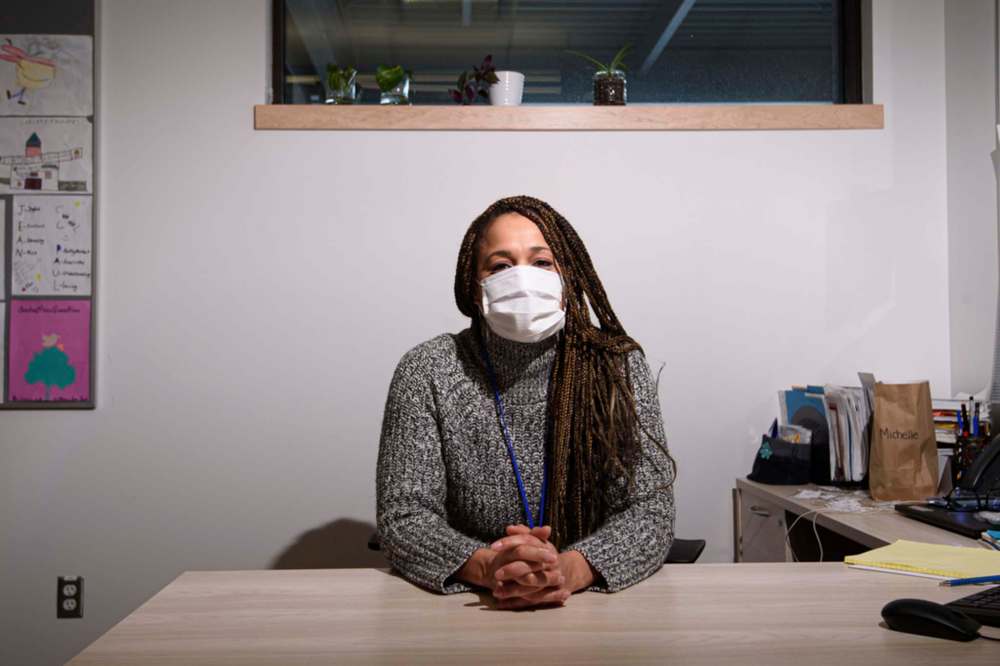Anti-racism 101
School leaders invited to virtual workshop
Advertisement
Read this article for free:
or
Already have an account? Log in here »
To continue reading, please subscribe:
Monthly Digital Subscription
$0 for the first 4 weeks*
- Enjoy unlimited reading on winnipegfreepress.com
- Read the E-Edition, our digital replica newspaper
- Access News Break, our award-winning app
- Play interactive puzzles
*No charge for 4 weeks then price increases to the regular rate of $19.00 plus GST every four weeks. Offer available to new and qualified returning subscribers only. Cancel any time.
Monthly Digital Subscription
$4.75/week*
- Enjoy unlimited reading on winnipegfreepress.com
- Read the E-Edition, our digital replica newspaper
- Access News Break, our award-winning app
- Play interactive puzzles
*Billed as $19 plus GST every four weeks. Cancel any time.
To continue reading, please subscribe:
Add Free Press access to your Brandon Sun subscription for only an additional
$1 for the first 4 weeks*
*Your next subscription payment will increase by $1.00 and you will be charged $16.99 plus GST for four weeks. After four weeks, your payment will increase to $23.99 plus GST every four weeks.
Read unlimited articles for free today:
or
Already have an account? Log in here »
Hey there, time traveller!
This article was published 12/02/2021 (1762 days ago), so information in it may no longer be current.
Cynthia Taylor wants teachers to reconsider their classroom seating charts.
Do students sit in an alphabetical order? Are desks organized in rows or a round configuration so students can see one another and build community? Who has the best view of the whiteboard?
“It’s a bit hard during COVID times… but your position in a room matters. And if you’re sitting in a classroom facing the front, where are the students of colour?” said Taylor, a student services teacher in Winnipeg and longtime member of Educators of Colour Network.

Anti-racism work prompts teachers to ask these kinds of questions, she said.
To practise anti-racist teaching means to participate in ongoing self-reflection about personal biases and beliefs, relationship-building, researching, reading and having uncomfortable conversations about how power and privilege come into play at school. It means going beyond being “not racist.”
The Educators of Colour Network wants Manitoba school leaders to take away these fundamentals from their first “Intro to Anti-Racist Education” online workshop scheduled for next week.
Network founder Michelle Jean-Paul said school staff are far more comfortable talking about diversity, multiculturalism and equity than white privilege, but a shift has happened in recent months, now that school leaders are naming anti-racism.
The result, she said, is teachers feel they have permission to do this work — and the network wants to help them do it.
The grassroots group, which consists of 230 teachers, has advocated for more diverse teaching rosters and provided professional development and networking opportunities to internationally-trained educators since it was formed in 2009.
Over the last year, amid a renewed focus on the Black Lives Matter movement, the group has broadened its mandate.
The network has been hosting discussions on how the movement has put BIPOC (Black, Indigenous, people of colour) educators in the spotlight, as white co-workers turn to them to discuss their racialized experiences and anti-racism work.
“It’s really important that we recognize the emotional labour that educators are enduring — especially educators who identify as Indigenous, Black, people of colour — and that sense that they are expected to be experts,” said Sherry Jones, a network member and former principal, who is currently a staff officer at the Manitoba Teachers’ Society.
Jones said it’s important all educators learn how to use an anti-racist lens.
For Jean-Paul, that means developing the knowledge, skills and competencies to both challenge ideas of racism and address racism when it presents itself.
“We have to recognize that our students are coming to us with very rich and varied lived experiences and that we, the people who work in schools, are coming to our work with very rich and varied experiences, and that needs to impact the lens through which we see things,” said Jean-Paul, a Winnipeg principal.
“If we’re only ever looking through the dominant lens, oftentimes, we are reinforcing whiteness, patriarchy, heterosexuality.”
Examples of challenging those norms could be reorganizing a classroom library to ensure diverse voices and stories are represented on the shelves, or examining the role racial bias has in school hiring practices, she said.
Dating to the late 1980s, Manitoba Education has backed anti-racist education, said Tony Tavares, a diversity education consultant with the province.
Earlier in the school year, the province updated its Canadian Black history and anti-racism education resource for teachers. The web page now includes an anti-racist reading list and an in-depth look at Black history specific to Manitoba.
maggie.macintosh@freepress.mb.ca
Twitter: @macintoshmaggie

Maggie Macintosh reports on education for the Winnipeg Free Press. Funding for the Free Press education reporter comes from the Government of Canada through the Local Journalism Initiative.
Our newsroom depends on a growing audience of readers to power our journalism. If you are not a paid reader, please consider becoming a subscriber.
Our newsroom depends on its audience of readers to power our journalism. Thank you for your support.



